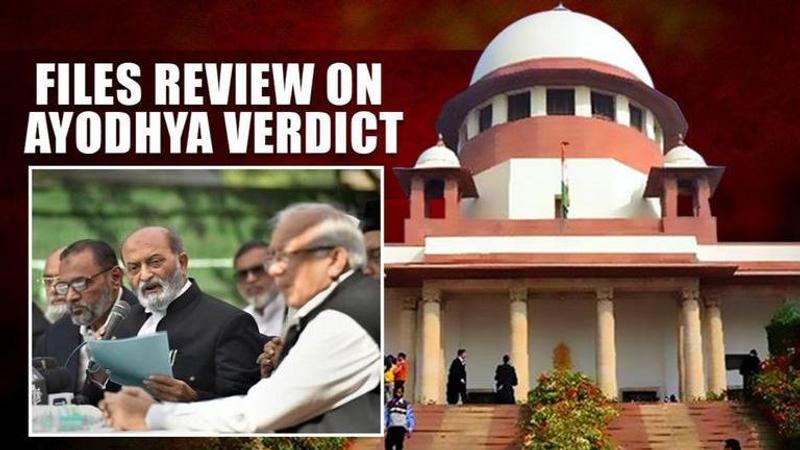Published 15:02 IST, December 6th 2019
AIMPLB files petition to review Supreme Court's Ayodhya land dispute verdict
Almost a month after the Ayodhya verdict was pronounced, All India Muslim Personal Law Board (AIMPLB) has filed its review petition on behalf of muslim parties

Almost a month after the Ayodhya verdict was pronounced, All India Muslim Personal Law Board (AIMPLB) has filed its review petition on Friday, on behalf of the Muslim parties. In the petition filed, AIMPLB stated that Hindus never had complete rights over the disputed land as Muslims offered prayers in the place till 1949. The body had announced that it will file for review just hours after the Supreme Court verdict favoured the Hindus, clearing the pathway for construction of the Ram Temple.
Rajeev Dhawan sacked
Previously on Tuesday, Advocate Rajeev Dhawan confirmed that his sacking was as per the wishes of the client - Jamiat Ulema-e-Hind and not the All India Muslim Personal Law Board (AIMPLB). He added that the client had some issues with him and called their claims of his ill-health false. He added that the client had submitted their draft review to him and then had rejected his corrected draft. AIMPLB to backed the ousted Rajeev Dhawan thanking him for his service.
AIMPLB rejects land offer
Earlier on November 17, AIMPLB rejected the Supreme Court's offer of alternate land of 5 acres to build a mosque stating the offer will not heal the wounds caused to the community. The board also stated that building the mosque in an alternate location was not permissible according to Islamic Law. It also decided to file the review petition unanimously.
Supreme Court's Ayodhya verdict
Pronouncing the landmark judgment in the Ayodhya dispute case on November 9, the Supreme Court, delivered a unanimous judgment in the title suit of the disputed area awarding it to the Hindu parties for the construction of a temple. It also directed the Centre to come up with a scheme within three months to set up a trust which will hand over the outer courtyard and inner courtyard of the site for construction of a temple. Apart from this, the SC stated that an alternate land of 5 acres is to be allotted to Muslims for the liberty of constructing a mosque, either by the central govt or the State govt, in a suitable and prominent place in Ayodhya. CJI Ranjan Gogoi, while delivering the unanimous judgment, dismissed the claims of the Sunni Central Waqf Board and the Nirmohi Akhara. He also termed that the three-way division of the disputed land by the Allahabad HC in its 2010 verdict is wrong.
Updated 15:13 IST, December 6th 2019




